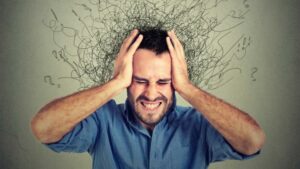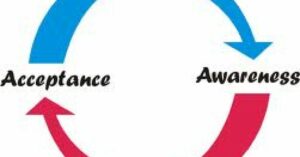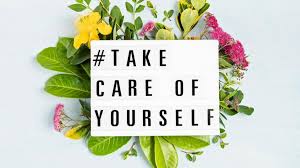Living with OCD can be difficult, especially if you don’t have the support of your friends and family. If you’re struggling to get the support you need, don’t worry – there are plenty of resources available to you. In this blog post, we will discuss some of the best ways to get the support you need for your OCD disability. We will also provide a few tips on how to cope with OCD on your own.
Contents
What Is OCD Disability?
 OCD is described as an anxiety disorder that is characterized by obsessions and compulsions. People with OCD often have intrusive thoughts or images that are unwanted and cause distress. On the other hand, disability is defined as any condition that limits a person’s ability to function in daily life.
OCD is described as an anxiety disorder that is characterized by obsessions and compulsions. People with OCD often have intrusive thoughts or images that are unwanted and cause distress. On the other hand, disability is defined as any condition that limits a person’s ability to function in daily life.
With these two concepts in mind, OCD disability can be defined as a form of anxiety disorder that significantly limits an individual’s ability to function normally in day-to-day activities. People with OCD disability often have obsessions and compulsions that make it difficult for them to concentrate or focus on tasks, interact with others, and/or take care of their personal needs.
Also, OCD with a disability may seem to be manageable at first, but can gradually worsen over time if not treated. Studies have found that they may be more likely to experience a decline in their mental and physical health, as well as an increased risk for suicide.
Therefore, it is important to seek professional help if you think you or a loved one may be struggling with an OCD disability. A qualified mental health professional can provide an accurate diagnosis and create a treatment plan that can improve your quality of life.
What Are The Symptoms?
There are many symptoms of OCD that can make daily life very difficult. For some, the obsessions are mainly centered around certain themes, such as contamination, harm, or sexual content. Others may experience a range of different obsessions and compulsions. Some of the more common symptoms of OCD disability include:
- Obsessive thoughts that are intrusive and unwanted
- Recurring doubts or fears (e.g., “Did I turn off the stove?”)
- Excessive focus on certain objects, activities, or body parts
- The need to perform rituals or compulsions (e.g., handwashing, counting, checking)
- Avoidance of certain situations or objects (e.g., fear of contamination, heights)
- Intense anxiety or distress when rituals are not carried out
It is believed that OCD disability affects about two percent of the population. While it can occur at any age, it is most often diagnosed in adolescence or early adulthood. If you think you may have OCD, it is important to seek professional help. A qualified mental health professional can conduct a thorough assessment and provide you with an accurate diagnosis.
Also, you should never try to self-diagnose or self-treat OCD. The disorder can be very complex, and effective treatment requires specialized training and experience. If you are struggling with OCD, please reach out for help. There are many resources available to you, and there is Hope.
How Does OCD Disability Impacts Life?
 It is believed that OCD affects about two percent of the world population. The majority of people with OCD are diagnosed in adolescence or early adulthood, with an equal gender split. Here are some of the negative impacts OCD can have on a person’s life:
It is believed that OCD affects about two percent of the world population. The majority of people with OCD are diagnosed in adolescence or early adulthood, with an equal gender split. Here are some of the negative impacts OCD can have on a person’s life:
- OCD can severely interfere with a person’s ability to work or go to school.
- People with OCD often have difficulty keeping friends and maintaining healthy relationships.
- Many people with OCD suffer from depression, anxiety, and other mental health disorders.
- People with OCD may turn to drugs or alcohol to self-medicate.
- OCD can lead to social isolation and loneliness.
The negative impacts of OCD can be especially hard to cope with if you don’t have the support of family and friends. Because OCD can be such a debilitating disorder, it’s important to get the support you need from professionals and loved ones.
For example, if a person with an OCD disability tries to avoid using public transportation, this can limit their ability to work or go to school. If a person with OCD is constantly checking the locks on their doors, this can affect their social life and make it difficult to maintain relationships.
So, overall you must be aware of the consequences that OCD disability can have on a person’s life and get professional help if needed.
How To Treat It?
Many people with OCD find that some form of therapy, usually Cognitive Behavioral Therapy (CBT), helps treat their disorder. However, not everyone responds to CBT and some people may need to try other types of therapy or medication before they find what works for them.
For people with OCD who do not respond to traditional forms of treatment, other options can be considered. These include:
Exposure and Response Prevention (ERP)
This is a type of CBT that involves gradually exposing yourself to the things you fear and avoiding the urge to engage in your compulsions. ERP aims at helping you change your relationship with your OCD so that you no longer see it as something that controls you. For example, it might involve touching an object you fear and then not washing your hands afterward.
It is believed that OCD disability is caused by a combination of factors, including genetics, brain chemistry, and life experiences. So, ERP can be very helpful in addressing the root causes of OCD. Because it focuses on the here-and-now, it can be especially helpful for people who have experienced trauma or other forms of abuse.
Acceptance and Commitment Therapy (ACT)
 This is a type of therapy that helps you accept the things you cannot control and commit to taking action in areas of your life that are important to you. ACT can be helpful in treating OCD because it can help you learn to accept your intrusive thoughts and not be controlled by them. It can also help you focus on what is important to you and take action towards your goals.
This is a type of therapy that helps you accept the things you cannot control and commit to taking action in areas of your life that are important to you. ACT can be helpful in treating OCD because it can help you learn to accept your intrusive thoughts and not be controlled by them. It can also help you focus on what is important to you and take action towards your goals.
More often, ACT for OCD disability is really about learning to live with the thoughts, rather than trying to get rid of them. It’s about learning to let go of the need for perfection and control. It’s about learning to find value in your life, even with the presence of OCD.
Psychodynamic Therapy
This is considered one of the most effective treatments for OCD. It helps in exploring the emotions and thoughts that might be triggering the disorder. The therapist will help you understand how your past experiences are affecting your current behavior. It works to change the negative thoughts and emotions that are associated with OCD.
Studies have shown that this type of therapy can be just as effective as medication in treating OCD. And, it has the added benefit of not having any side effects.
Medication
Medications are usually the first line of defense against OCD. A class of drugs called selective serotonin reuptake inhibitors (SSRIs) is most commonly used to treat OCD. These drugs work by increasing levels of serotonin, a brain chemical that helps regulate mood and emotions. An SSRI may be prescribed if you have moderate to severe OCD.
If an SSRI doesn’t relieve your symptoms or causes intolerable side effects, your doctor may prescribe a different type of medication, such as an atypical antipsychotic or tricyclic antidepressant. These drugs are generally used only when other treatments haven’t worked.
Self-help tips
 Although OCD disability is treatable with professional help and medication, some people with OCD may not be able to get the help they need. Here are some self-help tips that may be helpful:
Although OCD disability is treatable with professional help and medication, some people with OCD may not be able to get the help they need. Here are some self-help tips that may be helpful:
- Educate yourself about OCD. The more you know about OCD, the better equipped you will be to manage your symptoms.
- Talk to someone who understands. It can be helpful to talk to someone who has OCD or knows someone with OCD. This can help you feel less alone and give you a better understanding of what you are dealing with.
- Join a support group. There are many online and in-person support groups available for people with OCD. This can be a great way to connect with others who understand what you are going through.
- Practice relaxation techniques. Relaxation techniques such as yoga, meditation, and deep breathing can help you manage your symptoms.
- Exercise. Exercise is helpful for people with OCD. It can help reduce stress and improve your overall well-being.
- Keep a journal. Writing about your thoughts and feelings can be a helpful way to cope with OCD.
- Set realistic goals. Trying to do too much at once can be overwhelming. Set small, achievable goals and celebrate your progress along the way.
- Be patient. Recovery from OCD takes time. Be patient with yourself and don’t be discouraged if you have setbacks.
So these are some self-help tips that may be helpful if you’re struggling with OCD and don’t have access to professional help. However, it’s important to remember that OCD is a serious condition and if you’re struggling, you should reach out to a mental health professional.
Conclusion
To conclude, OCD disability is simply described as a mental health condition where a person experiences obsessions and/or compulsions that significantly interfere with their daily life. This is a serious condition that can have a profound impact on a person’s quality of life. If you or someone you know is struggling with OCD, it is important to seek professional help.
There are many resources available to help people with OCD, and with the right support, it is possible to manage the condition and live a full and happy life. Also, you will find that there are a lot of people who understand what you are going through and can offer support and advice.
You can also contact Therapy Mantra for more information and resources. We have a team of professional therapists who can provide you with the support and guidance you need to recover from this condition. Contact us today to learn more about our services. You can also book an online therapy or download our free OCD treatment app on Android or iOS.


